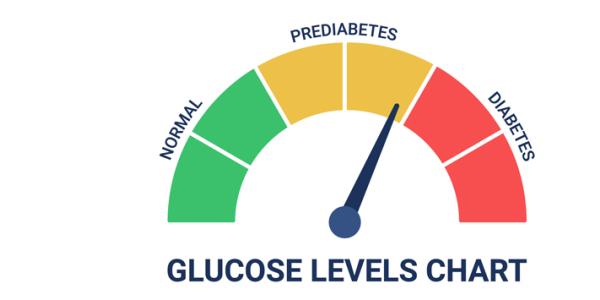


According to the Centers for Disease Control and Prevention (CDC), more than 37 million Americans are living with diabetes — a disease that affects how your body turns food into energy. But what's even more shocking is the amount of people living with prediabetes — a condition that can develop into full-blown diabetes without treatment. According to the CDC, there are approximately 96 million American adults living with prediabetes — and more than 80% of them don't even know they have it!
With numbers like that, it's no wonder why diabetes (and prediabetes) education is so important. As the number of Americans living with diabetes grows, so does the need to understand the different types of diabetic conditions — especially prediabetes — and how to prevent symptoms from worsening.
The pancreas is an organ located in the abdomen that aids in the digestion process by producing enzymes and hormones that break down food into fuel for your body. Most of the food you eat is broken down into glucose (sugar) and released into your bloodstream. When your blood sugar rises, it signals the pancreas to produce insulin — the hormone responsible for regulating the body's blood sugar levels. Diabetes is a condition where a person's blood sugar level is too high, either because their body stops responding to insulin or it doesn't produce enough on its own. Over time, this can lead to serious health issues, such as kidney disease, heart disease, vision loss and increased risk of stroke.
Before we get to the difference between diabetes and prediabetes, it's important to have a basic understanding of the three types of diabetic conditions: type 1, type 2 and gestational diabetes.
Now that you understand the basics of diabetes, it's time to touch on prediabetes. Prediabetes is a condition where your blood sugar level is elevated, but not high enough to be diagnosed with type 2 diabetes. Without meaningful lifestyle changes, those with prediabetes are at a much higher risk of developing type 2 diabetes within the next five years. Even with just prediabetes, high blood sugar levels can cause long-term damage to your heart, kidney and blood vessels.
Since prediabetes typically doesn't produce any noticeable symptoms, it's crucial to get screened early via a simple blood test. Remember, more than 8 out of 10 Americans with prediabetes don't know they have the condition! By identifying the disease early, you can control or even reverse the effects of prediabetes.
If you have been diagnosed with prediabetes, there's still some good news. With proper treatment and lifestyle changes, you can stop prediabetes from progressing to type 2 diabetes. Cut your risk of developing diabetes in half by taking these healthy steps:
If you are concerned about diabetes or prediabetes, talk to your doctor about your risk factors. If you are in fact diagnosed with diabetes, the diabetes education specialists at El Camino Health can help you better understand and manage the disease.
This article first appeared in the November 2022 edition of the HealthPerks newsletter.

Identify your risk factors and what to do if you are at risk.